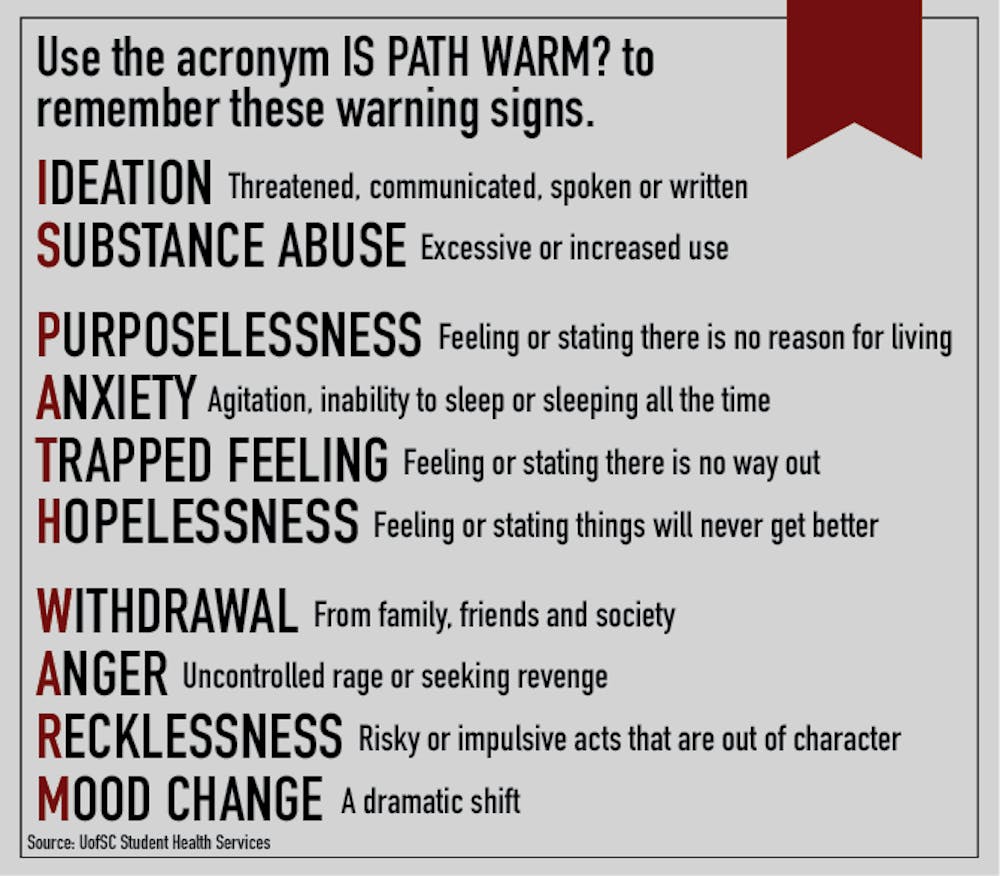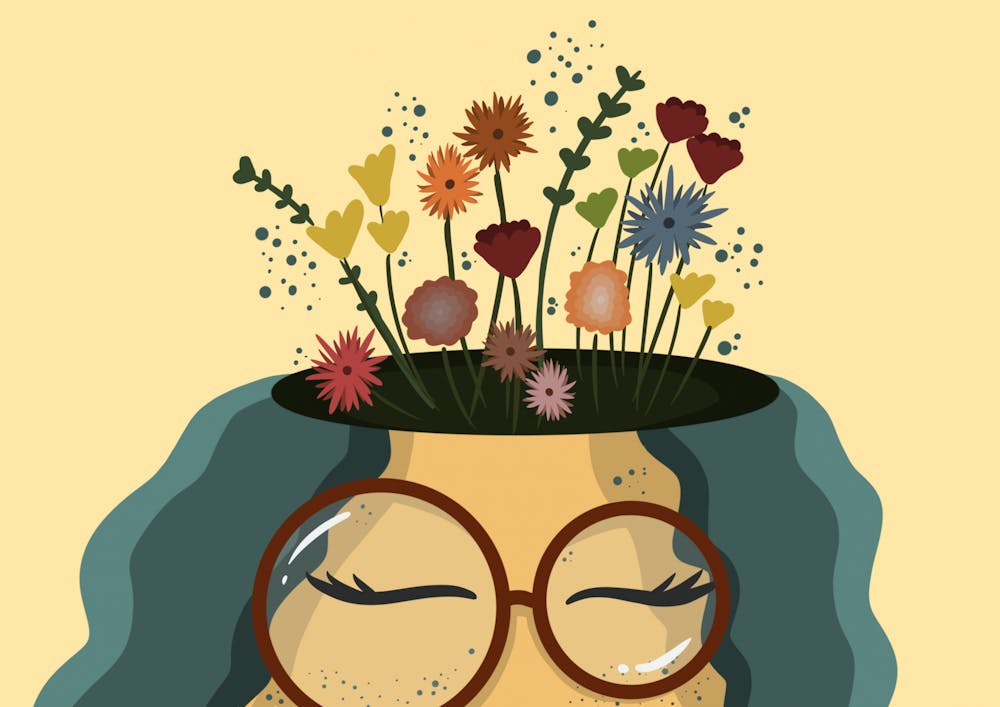Students oftentimes see the signs of their peers struggling with their mental health before a professional does. Recognizing the warning signs might help get them the resources that they need.
According to a National College Health Assessment survey for spring 2019, 40.8% of students felt so depressed it was difficult to function. Of the 5,000 USC students the survey was sent to, 619 responded.
“You as a student, as a peer, you're going to see [signs] long before it hits our doorway," April Scott, associate director of mental health initiatives, said. "So, how do we empower students to know how to step in and get their friend the help that they need?"
Phyllis Raynor, interim program director of the Psychiatric Mental Health Nurse Practitioner Program at USC, refers to mental health as a person's "internal environment." She said students can offer support for their peers as they take their first steps to seek professional help.
"'Whatever's going on in this internal environment is beyond your ability to handle it right now, and that's OK, let's get help for this. And I want you to know that you're not alone, and I will be with you at every step of the way. So, can we take that next step together?'" Raynor said. "That peer offering support is key."
Even if a student does not know what to say, they could still reach out.
“You know, I think a lot of times people don't reach out because they don't know what to say," Beverly Baliko, an associate professor in the College of Nursing, said. "You don't have to really say anything. It's just the fact that you're there."
For students to become more comfortable having and initiating these conversations, Student Health Services offers an online program, Kognito, and Suicide Prevention Gatekeeper training. Students can also call the counseling center to request a consultation if they are unsure of how to help someone. Another resource that Kate Hanshaw, the program coordinator for mental health initiatives, said she recommends is seizetheawkward.org.
One of Scott’s goals is to have every student, staff and faculty member trained in how to recognize and intervene when someone is struggling, she said.

In the Suicide Prevention Gatekeeper Training, Hanshaw teaches an acronym to help recognize the warning signs: IS PATH WARM, which stands for ideation, substance abuse, purposelessness, anxiety, trapped feeling, hopelessness, withdrawal, anger, recklessness and mood change.
“Big one that you can see on college campuses is someone not showing up to class or not showing up to events," Hanshaw said. "So, when everyone's really passionate about student org, and then they suddenly quit showing up; or a sport; or, you know, in your upper division of your program, and you've worked so hard to get there, and suddenly you're not showing up to class.”
Students should also trust their gut when recognizing distress signs in their friends and classmates.
"It's picking up on something, and then follow that gut with checking in on the person you're concerned about," Scott said.
For students struggling, Scott said it is important to know that recovery takes all forms at all levels.
"When I say recovery, I mean the minute the people who have struggled with a mental health condition, or have struggled with thoughts and found a way out and used the resources in that, there are things in place for people at any level of the spectrum," Scott said. "You don't have to be suicidal to start thinking and taking care of your mental health and taking advantage of these resources."
Hanshaw said not everyone realizes mental health is something that needs to be maintained, whether someone has a diagnosed mental health condition or not.
“Mental health is something that you have every day. So, good or bad, you have mental health constantly, and a lot of people think about, ‘Oh, well, if I don't have a mental illness or a mental health condition, then I'm fine,’ but you can have poor mental health and not have a mental health condition. So, it's really important that you practice self-care," Hanshaw said.

